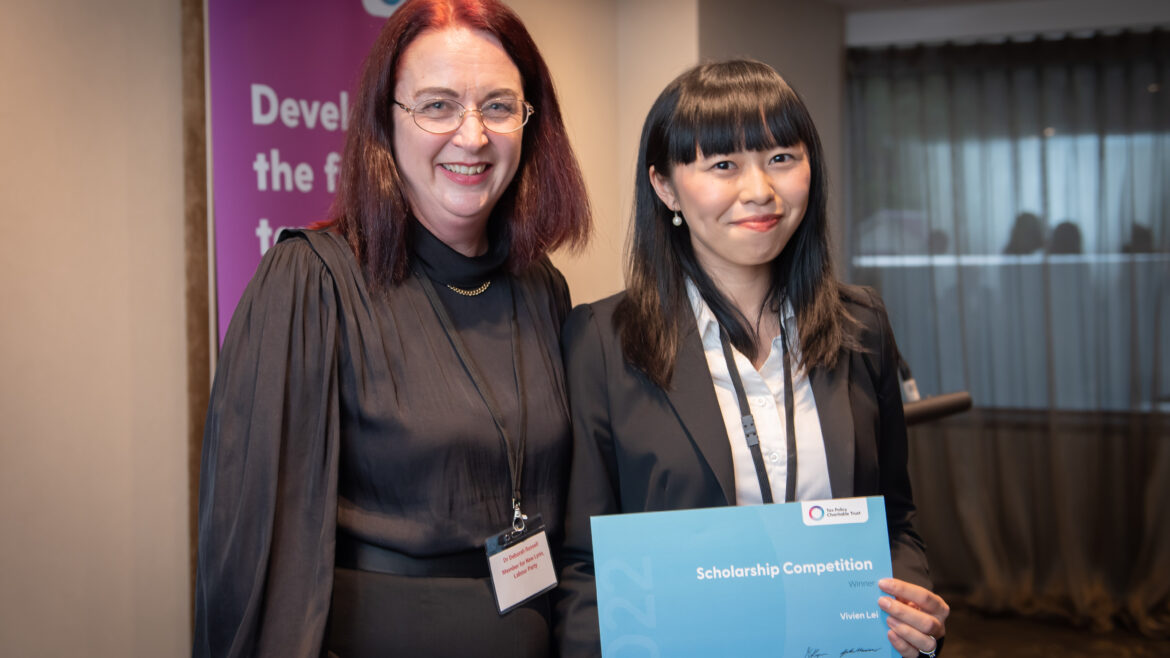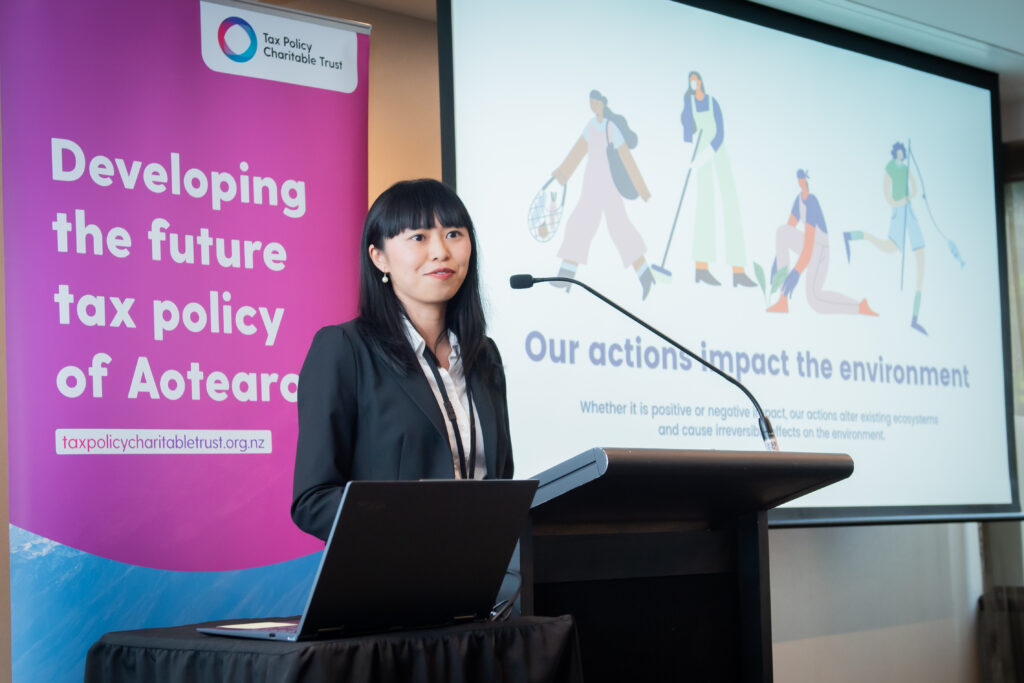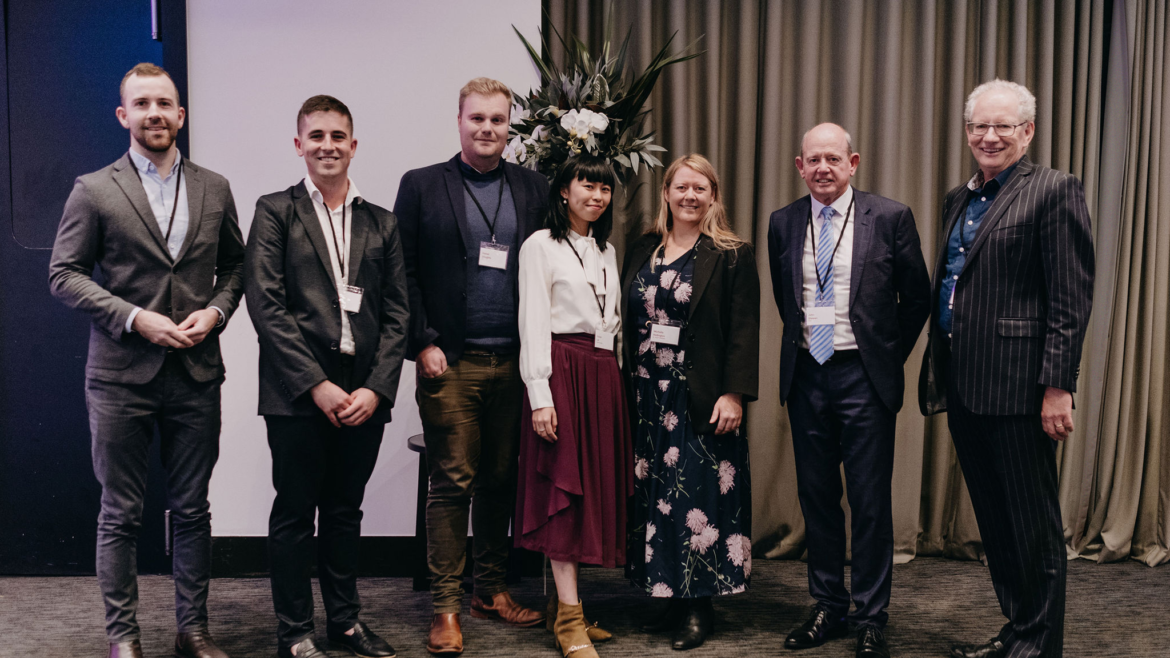Proposals focused on enhancing tax compliance and equitable revenue-raising earned top honours in this year’s competition.
Now in its fifth year, the Tax Policy Scholarship Competition continues to push the boundaries of innovation in tax policy. This year, Matthew Seddon, a lawyer at Bell Gully, and Andrew Paynter, a policy advisor at Inland Revenue, were named joint winners. Their proposals addressed some of the most pressing challenges facing Aotearoa today—fiscal sustainability, equity, and the need for smarter approaches to enforcing existing tax compliance.
Claudia Siriwardena, a senior tax consultant at Deloitte, and Matthew Handford, a tax solicitor at Mayne Wetherell, were also celebrated as finalists.
The Tax Policy Scholarship Competition, run by the Tax Policy Charitable Trust and Tax Management New Zealand, invites entrants under 35 to propose improvements to New Zealand’s tax system, or analyse and suggest changes to address potential unintended consequences of existing laws. Each entrant’s proposal reflects their viewpoint, not the stance of any organisation or group, and aims to spark debate and discussion.
Extending independent contractor withholding taxes

Joint winner Matthew Seddon’s proposal addresses tax compliance challenges posed by independent contractors, by extending PAYE withholding to independent contractors who principally provide services to persons with an existing PAYE obligation (employers) and those who operate through electronic marketplaces.
“The rise of the independent contractor is one of the biggest challenges to the integrity of the New Zealand tax system,” explains Matthew. “As more people turn to contracting, ensuring they comply with their tax obligations has become increasingly difficult, as they generally fall outside the PAYE rules.”
Depending on the information they provide to the employer or electronic marketplace, contractors would be subject to different withholding rates, ranging from 10% to 45%.
“Employers already have existing software and systems in place and electronic marketplaces have the size and scale to undertake the withholding – as we have recently seen following the imposition of GST on listed services – so this extension is both practical and achievable,” says Matthew. “It ensures greater compliance by independent contractors while minimising compliance and administration costs.”
The proposal promises significant benefits for the tax system; reduced underreporting (which in 2018 cost New Zealand an estimated $850 million annually) and simplifying the tax obligations for contractors. “The proposal isn’t a new tax,” says Matthew, “but a collection mechanism for existing tax liabilities to ensure contractors comply with their tax obligations.”
Reflecting on his win, Matthew says: “I feel on top of the world! It was an amazing experience, especially with the high calibre of the other finalists.” He says the support from the Bell Gully tax team has been incredible. “Their encouragement throughout the process has meant a lot to me, and having team members in the audience made the win even more special.”
The joint winners each receive $7,000 for their efforts. “I will invest most of it and put some towards the summer holidays with family and friends.”
Raising GST and offsetting regressivity

Andrew Paynter proposed an increase in the GST rate to 17.5%, coupled with a targeted tax credit to mitigate the impact of revenue-raising measures on low- to middle-income earners. This bold idea addresses two key challenges: the need for more government revenue and the risk of exacerbating inequality.
“The Crown’s future fiscal position is concerning, with spending forecast to outgrow revenue,” says Andrew. “Raising GST offers a solution because it taps into a broad base and comes with minimal economic impacts and no significant ongoing compliance costs. However, we can’t ignore the fact that increasing the rate of GST would affect lower-income households.”
The key innovation in the proposal lies in the design of the tax credit. The credit would be automated, individualised, indexed to inflation, and paid to those earning under $69,000 per year.
“My goal was to find a way to raise revenue while ensuring low-to-middle-income individuals were not negatively impacted,” says Andrew. “This competition allowed me to explore these issues and develop a solution that balances fiscal responsibility, contextual realities, and fairness.”
While GST increases often raise concerns about inflation, Andrew’s analysis showed the impact would be one-off and manageable and far less disruptive than other forms of taxation. “GST is an efficient revenue-raiser, and its economic impact would be limited compared to other tax increases.”
Andrew is grateful for the support he received throughout the competition: “I wouldn’t have reached this point without the encouragement of friends, colleagues, and mentors. Their belief in me made all the difference.”
His plans for the prize money? “It’s been fantastic to celebrate with everyone,” says Andrew. “I plan to use some of the prize money for a holiday!”
Judges balance ambition and practicality in joint decision

The 2024 judging panel consisted of Joanne Hodge, former tax partner at Bell Gully and member of the 2017 Tax Working Group; Craig Elliffe, professor of law at the University of Auckland and also a member of the 2017 Tax Working Group; Nick Clark, senior fellow in economics and advocacy at the New Zealand Initiative; and Chris Cunniffe, strategic advisor at TMNZ and past CEO of TMNZ.
“Andrew’s proposal was macro in scale—ambitious and forward-looking, tackling the fiscal challenges of the next 50 years by leveraging the most effective tool for driving revenue. We appreciated the simplicity and flexibility of his approach, but we also recognised the political challenges in getting such a significant reform implemented,” said the judges.
“Matthew’s proposal was much more specific, addressing a clear gap in compliance by extending an existing system. It offered practical solutions with ripple effects throughout the tax landscape. Faced with the challenge of evaluating two vastly different but equally compelling ideas, we had in-depth discussions and ultimately decided that both deserved to be recognised as joint winners.”
Inspiring the next generation of tax leaders

The prizes were presented by Inland Revenue Commissioner Peter Mersi. The Commissioner, with a confessed passion for policy, noted that this competition was unique, and in his experience, he has not seen the private sector provide a platform to promote good policy in this way.
Both Andrew and Matthew agree that the competition provided a unique opportunity to develop new ideas and engage with industry experts.
“The most memorable part of the experience was not just thinking through complex future challenges, but designing practical solutions for them. Having the space to develop my ideas and test them with some of the leading thinkers in the tax space was invaluable,” says Andrew.
Matthew says the competition is a fantastic way to build professional connections and hone written and presentation skills. “It’s been great to share my ideas before esteemed members of the tax policy community and it has further reinforced my passion for a career in tax.”
The success of this year’s winners reflects the value of encouraging fresh ideas and fostering innovation within the tax community. The Tax Policy Charitable Trust and Tax Management New Zealand are proud to support the next generation of professionals through initiatives like the Tax Policy Scholarship Competition, which helps ensure New Zealand’s tax system evolves to meet future challenges.
Find out more about the Tax Policy Scholarship Competition here.
To see Matthew’s and Andrew’s full submissions, click here.








